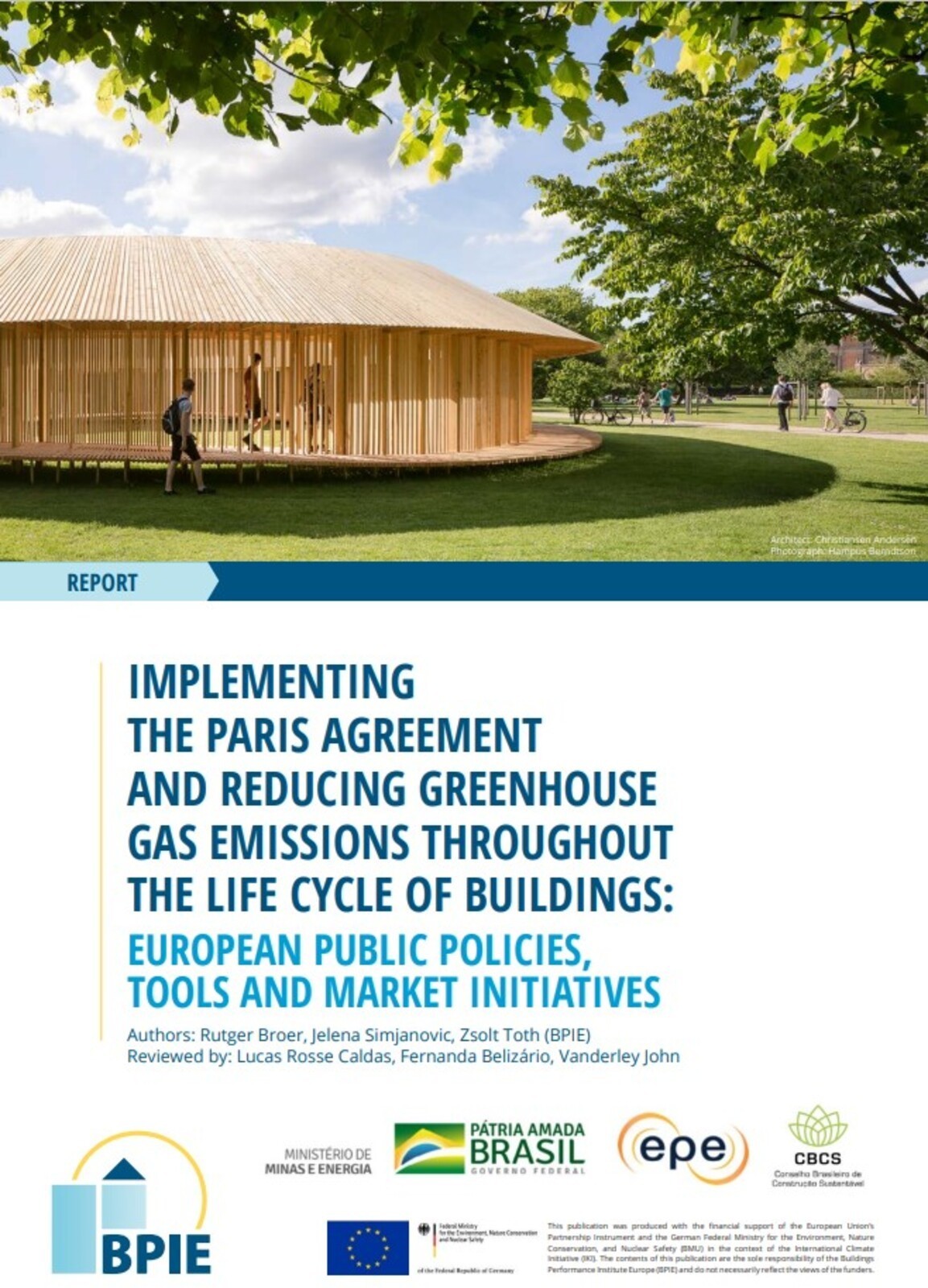Implementing the Paris Agreement and reducing greenhouse gas emissions throughout the life cycle of buildings: European public policies, tools and market initiatives
Maria Stambler

Being responsible for 38% of total global energy-related CO2 emissions, the built environment plays a vital role in delivering the Paris Agreement. Achieving climate neutrality by 2050 requires a fundamental transformation of the construction and buildings sectors. Residential, commercial and public buildings in Brazil are responsible for about 40% of electricity consumption.
The built environment offers significant carbon mitigation potential: decisive policy action will not only address the ongoing climate emergency we are facing, but will also directly reduce energy costs and improve security of supply, and has the potential to create widespread business opportunities and significant numbers of new, local jobs. Based on this context, the study presented in this report was developed at the request of the Brazilian Ministry of Mines and Energy (MME) within the scope of the SPIPA programme.
This report discusses policies, tools and market initiatives aimed at reducing upfront emissions – that is, the embodied carbon associated with building construction, including the extraction and processing of materials. It intends to:
• Discuss concepts such as whole-life carbon (WLC) assessment and life-cycle assessment (LCA) to Brazilian policymakers and construction sector stakeholders
• Provide a brief overview of the EU policy landscape targeting energy efficiency and carbon reductions in the built environment
• Showcase relevant market practices and trends
• Highlight lessons learned from existing and forthcoming initiatives and present best practice examples that can guide the design and implementation of similar schemes in Brazil.



